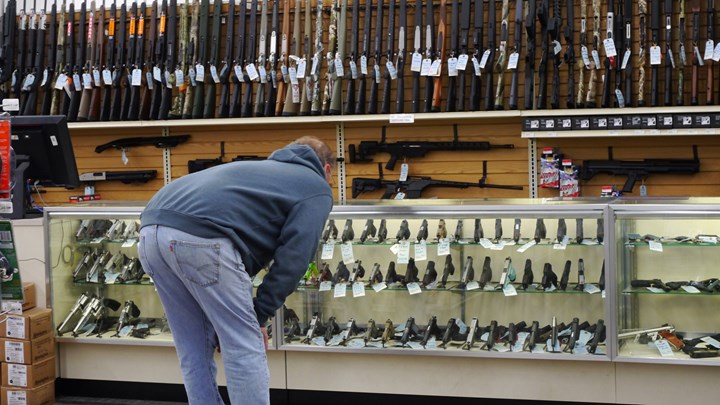
by Mark Chesnut - Tuesday, April 22, 2025

An ongoing battle over how credit card payment processors and other financial service companies categorize firearm and ammunition purchases could have a dire effect on the privacy of hunters, and states are quickly taking sides on the important matter.
While many gun owners are aware of the threat, some within the hunting community, who might not keep up with Second Amendment politics on a regular basis, are just beginning to learn about the scheme.
At issue is a relatively new Merchant Category Code (MCC) for gun purchases adopted by the International Organization for Standardization (ISO) in early 2023. MCCs are used by payment processors such as Visa, Mastercard and other financial services companies to categorize transactions.
Prior to the creation of the specific gun code, firearm retailers fell under the MCC for sporting goods stores or miscellaneous retail. Thus, records only showed that they had purchased something at one of those types of stores. When the new code is used, credit card companies and other payment processors can tell that the purchases were of firearms, yielding the ability to create a de facto gun registry.
According to a report from the National Rifle Association’s Institute for Legislative Action (NRA-ILA) the ISO adopted the new firearm retailer MCC at the behest of Amalgamated Bank, and over the objections of industry stakeholders. Amalgamated Bank is a left-wing political project, declaring on its website that it is “proud to support candidates, political parties, political action committees and political organizations as they seek to build power for progressive change.”
“Backers of the firearm retailer MCC have made clear that their goal is to use the code to enact further gun control through a public-private partnership,” the NRA-ILA report stated. “Amalgamated Bank noted that it intends to create a software algorithm that will use the MCC ‘to report suspicious activity and illegal gun sales to authorities.’ The contours of what would be deemed ‘suspicious activity’ have not been articulated. As those purchasing firearms from retail establishments already undergo an FBI National Instant Criminal Background Check System (NICS) check, such ‘suspicious activity’ would be aimed at otherwise lawful gun sales.”
Since the MCC controversy began, 20 states have passed laws banning the use of firearm-specific codes. Recently, the South Carolina House of Representatives passed House Bill 3930, which would prohibit the use of firearm- and ammunition-specific MCCs. The measure has now gone to the state senate.
Lawmakers in North Carolina are also trying to ban the use of gun-specific MCCs. House Bill 38 would also prohibit the use of firearm- and ammunition-specific MCC while including an enforcement mechanism that allows the North Carolina attorney general to pursue legal remedies against entities that violate these provisions.
At the other end of the spectrum, a few rabidly anti-gun states—such as California, New York and Colorado—have passed laws requiring the use of the firearm-specific MCC for all gun and ammunition sales, and some others are trying to do the same. New Jersey lawmakers are currently considering Bill A5345, which would require those selling guns in the Garden State to utilize the specialized MCC, and Connecticut legislators are considering House Bill 7137, which would require a specific MCC to be assigned to each firearm or ammunition retailer in the state.
As anti-gun jurisdictions attempt to force the firearm retailer MCC on hunters and other law-abiding gun owners, all Second Amendment supporters must remain vigilant. While federal law makes a gun registry illegal, schemes like this skirt that law and result in the same dangerous database.
Ultimately, collecting firearm retailer financial transaction data amounts to surveillance and registration of hunters and other law-abiding gun owners who are simply practicing their Second Amendment right to keep and bear arms for all lawful purposes. Those promoting this scheme are proponents of firearm and gun owner registration and unashamedly advocate against firearm owners’ privacy.
About the Author
Freelance writer and editor Mark Chesnut is the owner/editorial director at Red Setter Communications LLC in Jenks, Okla. An avid hunter, shooter and field-trialer, he has been covering Second Amendment issues and politics on a near-daily basis for over 25 years.
E-mail your comments/questions about this site to:
[email protected]
